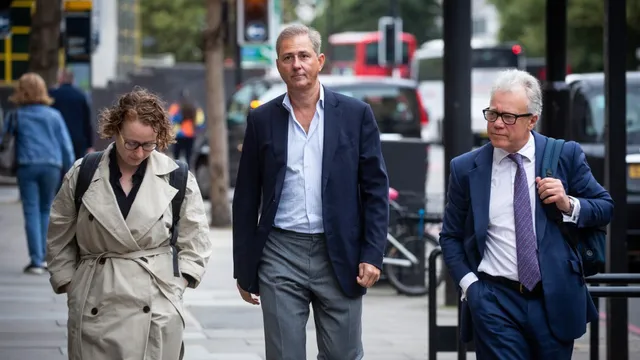
Glencore"s former oil chief faces corruption charges in Africa
2024-09-10 16:00- Alex Beard, former head of oil at Glencore, faces corruption charges in London related to operations in Africa.
- Four other former employees have also been charged, with allegations spanning multiple countries and years.
- The Serious Fraud Office's investigation aims to expose corruption and hold accountable those involved in bribery.
Express your sentiment!
Insights
Alex Beard, the former head of oil at Glencore, has appeared in a London court facing serious corruption charges linked to the company's operations in Africa. The Serious Fraud Office has charged him with two counts of conspiracy to make corrupt payments to government officials in Nigeria and Cameroon between 2007 and 2014. Beard, who joined Glencore in 1995 and led its oil division until 2019, is the highest-profile trader charged in the UK for alleged corruption. In addition to Beard, four other former Glencore employees are also facing charges. Andrew Gibson, the former head of oil operations, has been accused of multiple counts of conspiracy to make corrupt payments across Nigeria, Cameroon, and Ivory Coast. Other charged individuals include Paul Hopkirk, Ramon Labiaga, and Martin Wakefield, all of whom are linked to corrupt payments related to Glencore's activities in West Africa. The investigation into Glencore began in 2019, highlighting the company's operations in the region and the alleged corrupt practices that took place. The Serious Fraud Office aims to hold those responsible accountable, emphasizing the detrimental effects of bribery on financial markets and communities. All six men have been granted unconditional bail, with a hearing scheduled for next month at Southwark crown court. The case underscores the ongoing scrutiny of corporate practices in the commodities trading sector and the legal repercussions of corruption in international business dealings.
Contexts
Glencore's former oil chief is facing corruption charges in Africa, a situation that reflects broader issues of corruption and mismanagement in the region. In South Africa, Justice Minister Thembi Simelane has denied allegations of corruption related to a mutual bank scandal, where retirees lost their savings due to misuse of funds for luxury purchases and political donations. This scandal has led to public outcry and calls for accountability, particularly as President Ramaphosa seeks an official response to these serious allegations. The context of corruption in South Africa is further complicated by ongoing investigations into various incidents, including a recent case of monkey poisoning that has sparked public outrage. Activists have described the scene as horrific, highlighting the human-wildlife conflict in the area. This incident underscores the challenges faced by authorities in addressing both environmental and social issues, which can be intertwined with corruption and mismanagement. The developments surrounding Glencore's former oil chief and the South African mutual bank scandal illustrate a pattern of corruption that undermines public trust and highlights the need for systemic reforms. As investigations continue, the outcomes may have significant implications for governance and accountability in the region.